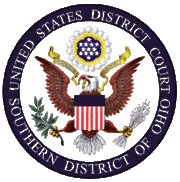| CompuServe Inc. v. Cyber Promotions, Inc. | |
|---|---|
 | |
| Court | United States District Court for the Southern District of Ohio |
| Full case name | CompuServe Incorporated v. Cyber Promotions, Inc. and Sanford Wallace |
| Decided | February 3, 1997 |
| Holding | |
| Trespass to chattels occurs when the defendant intrudes upon the plaintiff's property such that damage results. | |
| Court membership | |
| Judge sitting | James L. Graham |
CompuServe Inc. v. Cyber Promotions, Inc. was a ruling by the United States District Court for the Southern District of Ohio in 1997 that set an early precedent for granting online service providers the right to prevent commercial enterprises from sending unsolicited email advertising – also known as spam – to its subscribers. It was one of the first cases to apply United States tort law (Restatement (Second) of Torts §217 and §218) to restrict spamming on computer networks.[1] The court held that Cyber Promotions' intentional use of CompuServe's proprietary servers to send unsolicited email was an actionable trespass to chattels and granted a preliminary injunction preventing the spammer from sending unsolicited advertisements to any email address maintained by CompuServe.[2]